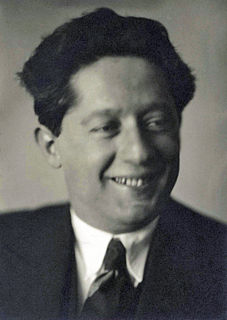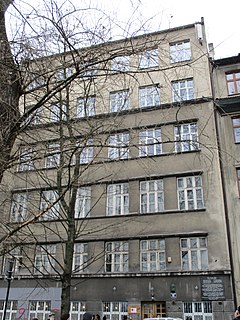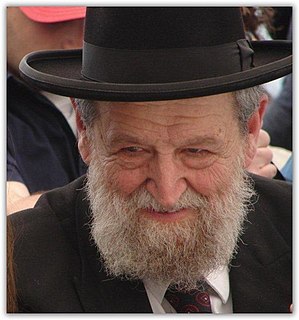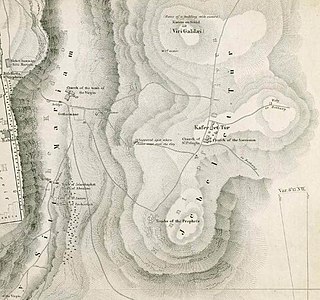Related Research Articles

Abraham Isaac Kook, known as Rav Kook, and also known by the acronym הראי״ה (HaRaAYaH), was an Orthodox rabbi, and the first Ashkenazi Chief Rabbi of British Mandatory Palestine. He is considered to be one of the fathers of religious Zionism, and is known for founding the Mercaz HaRav Yeshiva.

Saul Lieberman, also known as Rabbi Shaul Lieberman or, among some of his students, The Gra"sh, was a rabbi and a Talmudic scholar. He served as Professor of Talmud at the Jewish Theological Seminary of America (JTSA) for over 40 years, and for many years was dean of the Harry Fischel Institute in Israel and also president of the American Academy for Jewish Research.

Religious Zionism is an ideology that combines Zionism and Orthodox Judaism. Its adherents are also referred to as Dati Leumi, and in Israel, they are most commonly known by the plural form of the first part of that term Datiim. The community is sometimes called כִּפָּה סְרוּגָה Kippah seruga, literally, "knitted skullcap", the typical head covering which is worn by the men.
Harry Fischel was an American businessman and philanthropist based in New York City at the turn of the 20th century.

Zvi Yehuda Kook was a prominent ultranationalist Orthodox rabbi. He was the son of Rabbi Avraham Yitzhak Hacohen Kook, the first Ashkenazi chief rabbi of British Mandatory Palestine. Both father and son are credited with developing Kookian Zionism, which became the dominant form of Religious Zionism. He was Rosh Yeshiva of the Mercaz HaRav yeshiva.

Mercaz HaRav is a national-religious yeshiva in Jerusalem, founded in 1924 by Ashkenazi Chief Rabbi Abraham Isaac Kook. Located in the city's Kiryat Moshe neighborhood, it has become the most prominent religious-Zionist yeshiva in the world and synonymous with Rabbi Kook's teachings. Many Religious Zionist educators and leaders have studied at Mercaz HaRav.

A midrasha is an institute of Torah study for women, usually in Israel, and roughly the equivalent of a yeshiva for men. A "seminary" is a similar institution, more traditional in orientation. Midrashot are Religious Zionist, while Seminaries are usually Haredi; although in English, "Seminary", or "Sem", is often used for either.

Machon Meir is a religious Zionist outreach organization and yeshiva situated in the Jerusalem neighborhood of Kiryat Moshe, close to Givat Shaul. Machon Meir is one of the larger outreach organization in Israel, and is strongly associated with nationalist politics and the settler movement.
Rabbi Yehoshua Weitzman is an Israeli Rosh Yeshiva, heading Yeshivat Ma’alot Ya’akov, and prominent as a teacher and scholar of Torat Eretz Yisrael.
Hardal usually refers to the portion of the Religious Zionist Jewish community in Israel which inclines significantly toward Haredi ideology.

David Hanoch Yitzchak Bar-Hayim is an Israeli Orthodox rabbi who heads the Shilo Institute, a Jerusalem-based rabbinical court and institute of Jewish education dedicated to the Torah of Israel.

Neve Yerushalayim is the oldest and largest college for Jewish women in the world. Founded in 1970 to educate baalot teshuva in the why and how of living an Orthodox Jewish life, Neve has approximately 35,000 alumni. Its campus in the Har Nof neighborhood of Jerusalem is also home to 11 schools and seminaries for post-high school, undergraduate, and graduate students from religious backgrounds.

Pinchas Polonsky is a Russian-Israeli Jewish-religious philosopher, researcher, and educator active among the Russian-speaking Jewish community. He has written original books and a number of translations of works on Judaism.

Eliyahu Yosef She'ar Yashuv Cohen was the Ashkenazi Chief Rabbi of Haifa, Israel and the President of its rabbinical courts (1975–2011).

Aryeh Stern is the Ashkenazi Chief Rabbi of Jerusalem, a member of the Chief Rabbinate Council of Israel, and the chief editor of the Halacha Brura and Berur Halacha Institute.

Rabbi Shaul Yisraeli was one of the leading rabbis of religious Zionism. He served as the rabbi of moshav Kfar Haroeh, as a Dayan in the Supreme religious court of Israel, as a member of the Chief Rabbinate Council, as Rosh Yeshiva in Mercaz HaRav, and as President of the Eretz Hemdah Institute. Rabbi Yisraeli was awarded the Israel Prize in Judaic Studies.

Mossad HaRav Kook is a religious research foundation and publishing house based in Jerusalem.
Rabbi Charles Ber Chavel was a rabbi and scholar who, most notably, published critical editions of medieval Jewish commentators.

The Jewish Cemetery on the Mount of Olives in 1858 and today is the oldest and most important Jewish cemetery in Jerusalem. The cemetery contains anywhere between 70,000 and 150,000 tombs, including the tombs of famous figures in early modern Jewish history. It is considered to be the largest and holiest Jewish cemetery on earth.
References
- ↑ Harry Fischel: Orthodox Jewish Philanthropist Par Excellence Archived 2006-12-10 at the Wayback Machine , Glimpses Into American Jewish History, jewishpress.com]